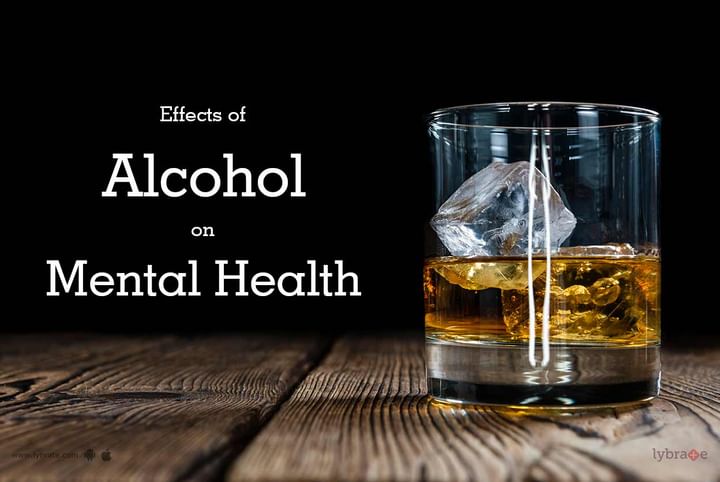Get the App
For Doctors
Login/Sign-up
Last Updated: Oct 23, 2019
BookMark
Report
Effects of Alcohol on Mental Health
Alcohol consumption is a common tool which is generally used by people in order to relax, calm down or temporarily change the way they think. People often use it also to hide their depression or anxiety or other such mental conditions. Alcohol can temporarily boost your mood, but along with that, it can also give you long term mental problems. Some of the common effects of alcohol on your mental state are enlisted below.
- Has an impact on your brain chemistry - The human brain functions on the basis of the balance of various kinds of chemicals excreted by the brain. Alcohol, if consumed in large amounts frequently can turn out to be a depressant and can change the signals that your brain transmits, hence causing undesirable mental effects like anxiousness, depression or aggressiveness.
- Anxiety and stress - People usually tend to take a drink after a hectic day so that they can relax and calm down their minds. But if you are frequently becoming dependent on alcohol to relax your mind, then it can be extremely dangerous. This happens because alcohol tends to interfere with the neurotransmitters in your brain exposing you to developing anxiety and stress.
- Depression - If you are resorting to regular and frequent drinking, then you are also lowering the level of serotonin inside your body. Serotonin is a chemical in your brain that helps to regulate your mood and kill depression-related thoughts and feelings. This depression can also affect your relationships in an adverse manner.
- Memory damage - Alcohol can also affect your memory in more ways than you can imagine. Alcohol consumption generally leads to your brain not recording information on a regular basis. This is the reason why people tend to forget whatever they say or do once they are under the influence of a heavy alcohol dosage.
Related Tip: 4 Do's and Don'ts on Drinking Alcohol + Common Myths Busted



+1.svg)
